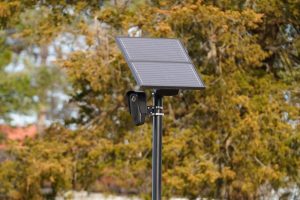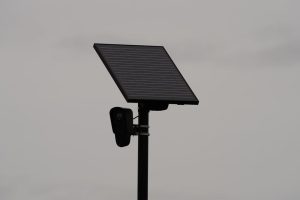
In an age where technology is increasingly being used to enhance security and improve public safety, Flock cameras have gained national attention. These devices are not typical home security cameras or streetlight-mounted CCTV systems—they are part of a powerful surveillance network used by neighborhoods, police departments, and city officials to combat crime using license plate recognition technology.
This article breaks down everything you need to know about Flock cameras: how they work, who uses them, their benefits and controversies, and what they mean for privacy and public safety in the 21st century.
What Is a Flock Camera?
A Flock camera, also known as a Flock Safety camera, is a solar-powered, motion-activated camera designed specifically to read and record license plates of vehicles passing by. These cameras are not built for facial recognition or general surveillance. Instead, their focus is on vehicle data—tracking cars that enter or leave an area.
Flock cameras are part of a broader Automated License Plate Recognition (ALPR) system. ALPRs are used by law enforcement agencies and neighborhood associations to identify vehicles linked to crimes, missing persons, stolen cars, or other law enforcement alerts.
Flock Safety is the name of the private company that manufactures these cameras and provides data services to clients, including over 3,000 police departments and neighborhoods across the U.S. (as of 2024).
How Do Flock Cameras Work?
Flock cameras are designed to be non-intrusive, efficient, and intelligent. Here’s a breakdown of how the system operates:
1. Motion Activation
Each camera is mounted at entry or exit points of a neighborhood, parking lot, or city street. The device activates when it detects motion from a passing vehicle.
2. High-Speed License Plate Capture
When a vehicle passes, the camera takes multiple photos and reads the license plate number using OCR (Optical Character Recognition).
3. Vehicle Metadata Recording
In addition to the plate, the camera collects:
- Vehicle make and model
- Color
- Type (SUV, sedan, truck, etc.)
- Unique features (roof racks, bumper stickers, damage)
4. Real-Time Database Matching
The plate data is compared against national law enforcement databases (such as NCIC) and local “hot lists” (vehicles flagged for crimes, Amber Alerts, or investigations).
5. Automated Alerts
If there’s a match, the system sends instant alerts to police departments or homeowners’ associations. This enables law enforcement to act swiftly.
6. Cloud Storage
All captured images and data are uploaded to Flock Safety’s secure cloud storage, where they remain available for a pre-defined period (usually 30 days) unless flagged for long-term retention.
Key Features of Flock Cameras
Flock cameras are engineered with purpose-specific features that make them stand out:
- Solar-powered and cellular-connected: No need for power lines or Wi-Fi.
- Night vision and weather resistance: Operate 24/7 in all weather conditions.
- No facial recognition: They only capture and analyze vehicles, not people.
- Crime-solving tools: Integrated with police software for instant alerts and evidence gathering.
- Private and secure data: Encrypted storage with strict access control policies.
Who Uses Flock Cameras?
Flock cameras are used across multiple sectors for crime deterrence and investigation:
1. Law Enforcement
Police departments use Flock cameras to track stolen vehicles, suspects, or persons of interest. They’re often deployed in high-crime areas, traffic corridors, or entry points to neighborhoods.
2. Neighborhood and Homeowners Associations
Gated communities, apartment complexes, and suburban neighborhoods install Flock cameras to monitor who enters and leaves, often with the aim of deterring theft, vandalism, or illegal dumping.
3. Schools and Campuses
Used for campus security, managing traffic, and ensuring only authorized vehicles access sensitive areas.
4. Businesses and Commercial Parks
To protect assets and property by monitoring delivery trucks, customers, and employees.
Benefits of Flock Cameras
Flock Safety claims that its cameras have helped reduce crime rates and increase arrest efficiency in many areas. Some commonly cited benefits include:
1. Crime Deterrence
The visible presence of ALPR systems discourages criminals from targeting neighborhoods or businesses.
2. Faster Criminal Investigations
By providing exact timestamps and vehicle information, Flock cameras help law enforcement solve crimes faster—sometimes in hours rather than days or weeks.
3. Efficient Use of Resources
Instead of placing police at every corner, a Flock camera can continuously monitor traffic with no need for human intervention.
4. Community Safety
Neighborhoods using Flock report feeling more secure, especially in areas with high rates of vehicle theft, break-ins, or package theft.
5. Non-Invasive Surveillance
Because they focus on vehicles, not people, Flock cameras are perceived as less intrusive than facial recognition systems or all-day video surveillance.
Real-World Success Stories
- Atlanta, GA: Flock cameras helped track and recover over 600 stolen vehicles in one year, contributing to a 20% drop in auto theft.
- Charlotte, NC: Police solved a drive-by shooting case in under 24 hours using license plate data from Flock.
- Fort Worth, TX: Neighborhoods using Flock saw a decrease in burglary incidents by up to 30%.
Controversies and Privacy Concerns
Despite their benefits, Flock cameras are not without criticism.
1. Privacy and Civil Liberties
Organizations like the ACLU argue that continuous surveillance of public roads could lead to over-policing, false accusations, or abuse of power. Even if the cameras don’t use facial recognition, vehicle tracking can reveal movement patterns over time.
2. Data Security Risks
Though Flock claims to use strong encryption, any cloud-based system carries risks of hacking or unauthorized access.
3. Bias and Profiling
Critics worry that the use of hot lists may disproportionately impact certain communities, leading to racial profiling or unnecessary stops.
4. Ownership of Surveillance
Because these cameras are often installed by private citizens or neighborhood boards, the lack of public oversight raises accountability questions.
Legal and Ethical Safeguards
Flock Safety has implemented several policies to address concerns:
- Data retention is limited to 30 days, unless manually saved.
- Cameras do not record sound or capture faces.
- Clients must sign usage agreements that comply with privacy laws.
- Communities can opt to exclude law enforcement access to their data.
Flock Camera vs Traditional Surveillance
| Feature | Flock Camera | Traditional CCTV |
| Focus | License plates, vehicles | General video footage |
| Image Recognition | Yes (vehicles only) | Often unclear details |
| Data Storage | Cloud-based | Local DVR/NVR systems |
| Motion Activated | Yes | Sometimes |
| Police Integration | Real-time alerts | Manual review required |
| Privacy Consideration | No facial recognition | May capture people |
The Future of ALPR Technology
Flock Safety is continuously expanding its features, including:
- Gunshot detection integration
- Vehicle fingerprinting, which tracks cars based on more than just license plates
- AI-driven crime prediction tools
While this brings improved public safety, it also deepens the ethical debate about surveillance and civil liberties in modern society.
Final Thoughts
Flock cameras represent a powerful intersection between technology and public safety. Their ability to passively monitor vehicles, assist in crime-solving, and deter criminal activity makes them an increasingly popular tool in communities across the United States. However, as with any surveillance technology, there’s a fine line between security and privacy.
When used with transparency, proper regulation, and public oversight, Flock cameras can serve as an effective component in creating safer neighborhoods. The key lies in responsible deployment, clear policies, and ensuring that citizen rights are respected while crime is deterred and solved.


2 thoughts on “What Is a Flock Camera? A Complete Guide 2025”